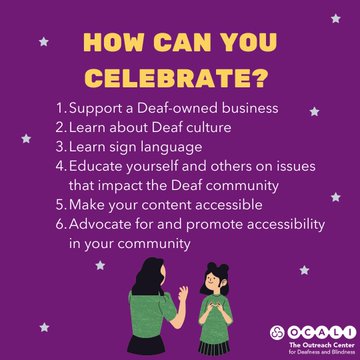South Africa
Early detection a lifeline for children with hearing loss─── ZENANDE MPAME 11:20 Mon, 22 Sep 2025

September marks International Deaf Awareness Month, a time to shine a light on the realities and challenges faced by children born with hearing loss and their families.
International Week of Deaf People, 21 to 27 September, aims to shed light on the issues faced by the deaf community, promote their culture and achievements, and foster a more inclusive society. The Hold My Hand campaign emphasises the need for early detection and intervention by advocating for a substantial change in how people address the needs of kids with hearing loss.
In South Africa, up to 17 new-borns are born with permanent hearing loss every day, according to the National Institute of Health.
The Hold My Hand campaign highlights the alarming fact that many of these children go years without receiving a diagnosis, affecting almost 6,000 babies annually.
“While newborn screening is routine in developed countries, this is not the case in South Africa,” said audiologist Sarah Lange. A huge barrier is the lack of audiology posts in public hospitals.
“The good news about hearing loss is we can do something about it; families can choose the spoken language route, where a child gets hearing technology and learns to speak, or the sign language route, where the child learns visual communication. In an ideal world, children would have access to both.
“When a baby is born, we don’t necessarily see that there are hearing problems. But hearing loss can mean a deprivation of sound to the brain, and that is going to affect a child’s ability to learn spoken language.”
If a child is diagnosed too late, they may not qualify for a cochlear implant. That family’s choice is then taken away, which is devastating, she said.

September marks International Deaf Awareness Month. Photo: X
The Hold My Hand campaign is also highlighting one crucial action that can be taken for children with severe or profound hearing loss: universal newborn hearing screening.
When babies are screened in the first month of life and receive support before they are six months old, they’re far more likely to develop language and connect meaningfully with the world, whether through speech, sign, or both.
“The earlier we screen, the better they will do later in life. Until the government mandates this, universal newborn hearing screening will not be a reality for South African children,” said Lange.














